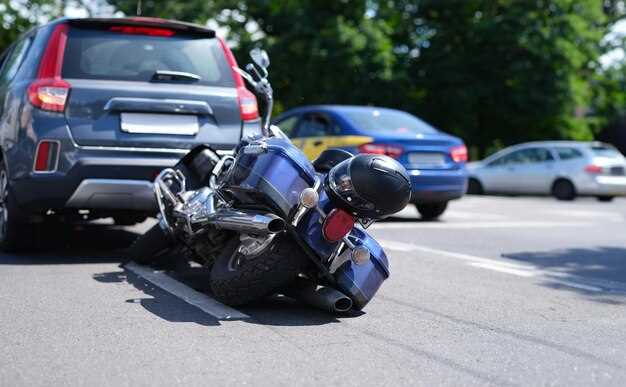How insurance write-offs turn into salvage motorcycles


In the world of insurance, countless motorcycles are deemed total losses due to accidents or damage, leading to their classification as salvage vehicles. Insurance companies often write off these motorcycles, viewing them as financial burdens rather than opportunities for recovery and restoration. However, with the right approach, these insurance write-offs can be skillfully transformed into remarkable salvage motorcycles that hold significant value.
The process begins with acquiring these motorcycles from insurance auctions or salvage yards, where they are sold at a fraction of their original price. Enthusiasts and mechanics with a passion for restoration see potential in these seemingly lost bikes. By carefully assessing the damage and strategizing the necessary repairs, they can breathe new life into these machines, turning a financial loss into a profitable venture.
Beyond the financial aspect, the transformation of salvage motorcycles is also an exercise in creativity and craftsmanship. Each motorcycle carries a unique story, and its restoration allows for personalization and innovation. This article delves into the journey of converting insurance write-offs into cherished salvage motorcycles, exploring the challenges, rewards, and the vibrant community that thrives in this niche automotive world.
Assessing the Value of Insurance Write-Offs for Motorcycle Restoration
When it comes to restoring salvage motorcycles, understanding the value of insurance write-offs is a crucial step. Insurance companies typically classify motorcycles as write-offs when the repair costs exceed a certain percentage of the vehicle’s market value. This classification allows buyers to acquire these motorcycles at a reduced cost, presenting an opportunity for restoration enthusiasts.
The first step in assessing the value of a write-off is determining its pre-accident market value. This value can be established through research on similar models, taking into account factors such as age, mileage, and condition. Once you have this baseline, you can evaluate whether the salvage motorcycle is a viable candidate for restoration.
Next, consider the extent of the damage listed in the insurance report. A write-off could range from minor cosmetic issues to significant structural damage. Assessing repair costs accurately is essential to avoid exceeding the motorcycle’s pre-accident value. Utilize professional appraisers or experienced mechanics to get an accurate estimate of what it will take to bring the motorcycle back to life.
Additionally, factoring in the potential for resale after restoration is vital. Some motorcycles, especially classics or popular models, may increase significantly in value once they are fully restored. Documenting all repairs and upgrades can also enhance resale value and attract buyers who appreciate quality workmanship.
In conclusion, the assessment of insurance write-offs for motorcycle restoration requires a careful and methodical approach. By understanding the initial value, damage extent, repair costs, and potential resale opportunities, you can make informed decisions that transform salvage motorcycles into valuable assets.
Navigating Legalities and Regulations for Salvage Titles

Understanding the legalities surrounding salvage titles is essential for anyone involved in the motorcycle salvage industry. This knowledge helps ensure compliance and prevents potential issues when buying, selling, or restoring salvage motorcycles.
When a motorcycle is deemed a total loss by an insurance company, it may receive a salvage title. This indicates that the vehicle was significantly damaged and is not roadworthy without repairs. Here’s how to navigate the regulatory landscape:
- Understand State Regulations: Each state has its own rules governing salvage titles. Check the Department of Motor Vehicles (DMV) or equivalent agency in your state for specific requirements. Common aspects include:
- Definition of a total loss
- Process for applying for a salvage title
- Requirements for inspection after repairs
- Documentation: Gather all necessary documentation to facilitate the title transfer. This may include:
- Insurance company’s total loss notice
- Bill of sale
- Previous title and registration, if available
- Rebuilding and Inspection: After purchasing a salvage motorcycle, you’ll need to rebuild it to meet safety standards. Most states require:
- An inspection by a certified authority
- Proof of repairs made
- Documentation to show the motorcycle is roadworthy
- Insurance Considerations: Obtaining insurance for salvage motorcycles can be challenging. Consider the following:
- Some insurers may refuse coverage on salvaged vehicles.
- Seek companies that specialize in insuring rebuilt motorcycles.
- Be prepared to provide documentation proving repairs and compliance with regulations.
- Legal Implications: Ensure compliance with the law to avoid penalties. Consider these potential legal issues:
- Selling a motorcycle without a proper salvage title
- Failing to disclose salvage history to a buyer
- Not following state restoration requirements
Transforming insurance write-offs into salvage motorcycles requires a clear understanding of the associated legalities. By adhering to state regulations and maintaining thorough documentation, you can navigate the complexities of salvage titles effectively.
Best Practices for Restoring and Reselling Salvage Motorcycles

When dealing with write-off motorcycles from insurance companies, understanding how to restore and resell them effectively is crucial. Salvage motorcycles can be a lucrative investment if handled correctly. Below are best practices for ensuring a successful restoration and resale process.
1. Thorough Assessment: Begin with a comprehensive evaluation of the motorcycle to identify the extent of damage. Inspect the frame, engine, and essential systems. Document all findings to determine what parts need repair or replacement.
2. Obtain Proper Documentation: Ensure all the necessary paperwork, including title salvage documentation and insurance records, is secured. This will facilitate a smoother resale and help potential buyers feel more confident in their purchase.
3. Quality Restoration: Focus on high-quality repairs using OEM or premium aftermarket parts. Address any mechanical issues, structural integrity, and cosmetic damages to ensure that the motorcycle meets safety and performance standards.
4. Mechanical Inspection: After restoration, conduct a thorough mechanical inspection to ensure everything functions correctly. This step is crucial for building trust with potential buyers and for presenting a motorcycle that is safe and reliable.
5. Detailed Listing: When preparing to resell the motorcycle, create an informative and detailed listing. Highlight the restoration work performed, parts replaced, and any upgrades made. Include clear photographs that showcase the motorcycle’s current condition.
6. Fair Pricing Strategy: Research the current market value of similar restored motorcycles to set a competitive price. Consider the costs incurred during the restoration process, ensuring that the asking price reflects both the investment and the motorcycle’s condition.
7. Transparency with Buyers: Be honest about the motorcycle’s history as a salvage vehicle. Providing complete background information builds credibility and reassures potential buyers, easing the transaction process.
8. Utilize Multiple Sales Channels: Take advantage of various platforms for selling. This could include motorcycle-specific websites, online classifieds, or social media marketplaces, maximizing visibility to reach a broader audience.
By following these best practices, individuals can effectively transform insurance write-off motorcycles into profitable opportunities while ensuring quality and safety for future owners.